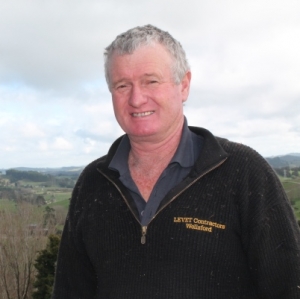RURAL CONTRACTORS New Zealand is questioning the high cost of machinery and parts that contractors and farmers are currently paying.
RCNZ president, Steve Levet says with the falling forecast milk price for the coming season dairy farmers are going to be careful when making decisions this year – and cost cutting will be top of mind.
"With the reality of a lower dairy payout this year, sheep and beef farmers already under the pump and arable producers also feeling the squeeze – further pressure is going to come on contractors to at least hold or reduce our costs," he says.
"Rural contractors do not have the luxury or the ability to absorb continued cost increases and just pass them on in our pricing to clients. So while farmers are not able to wear any price increases; contractors certainly cannot afford to carry on losing money either."
Levet says rural contracting is a tough business and in today's highly competitive environment it is not easy to make a profit.
"Contractors are already running pretty tight operations and there is not a lot – or in most cases any – fat to cut."
He says like their farmer clients rural contractors will have to look at reducing their costs.
"For most rural contracting business; one key area of cost is that of machinery and parts. Ask anyone about the costs of parts and they will all tell you the same thing: eye-watering."
Levet says this has seen many contractors – and farmers – look at sourcing parts from either non-aligned dealers and/or the internet.
"Just like consumers in the other parts of the economy; many rural contractors are finding the attraction and availability of cheaper goods via the internet a genuine way for them to cut costs."
He admits there are risks of not sourcing parts from machinery dealers – including no guarantee of such goods being 'genuine' parts and/or the lack of service back-up when using these non-dealer-sourced parts.
"Yet, despite such risks, many rural contractors are still choosing to source their parts this way – purely because of the huge price savings they can make by doing this."
Levet says he is not making a direct criticism of machinery dealers, but highlighting an example of the cost problems facing rural contractors and what some are doing to reduce their costs.
"I think most of us would agree this situation is not ideal and if there is a way that both rural contractors and machinery dealers can resolve this issue – then RCNZ is keen to be party to this," he says.
"Anything that will help lessen our costs and improve the bottom line has got to be a good thing."



















